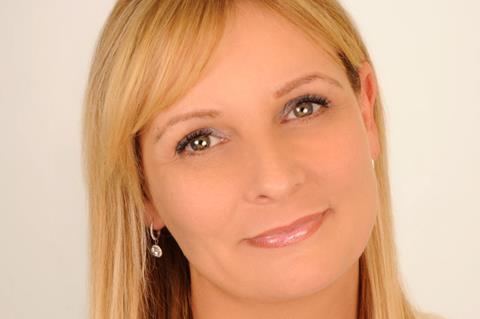The industry is overjoyed about AFM’s return to Los Angeles, and new US distribution players are adding buzz. But with TIFF: The Market just around the corner, there is still a question mark over the event’s long-term future.

When the US industry meets its global counterparts at the 2025 edition of the American Film Market (AFM, November 11-16), perennial issues such as challenges to the theatrical model and regional buying activity, as well as concerns about the entry process into the US under Donald Trump’s presidency, will be talking points. But everyone appears to agree on one issue.
“We are all very happy to be back on home turf,” Neon’s president of international sales and distribution Kristen Figeroid says of the event’s return to the Los Angeles area.

Ben Kramer, Black Bear’s new president of US distribution, adds: “It’s nice for the buyers to be here and schedule their producer, studio and agency meetings, which you don’t get in Vegas. Vegas is a distracting city. In Los Angeles, you are in the capital of the film business.”
Las Vegas, of course, was where AFM took place in 2024. It was an interim year while Independent Film & Television Alliance (IFTA) president and CEO Jean Prewitt and chairperson Clay Epstein of Film Mode Entertainment figured out a long-term home, after years of gripes about elevator malfunctions and the sprawling footprint of the market in Santa Monica.
“I was a big proponent of moving out of Santa Monica for many years because it had jumped the shark,” says Dylan Leiner, EVP acquisitions, production and business affairs at Sony Pictures Classics. “Buyers and sellers were tired and it needed a refresh. Las Vegas didn’t work. Coming back to Los Angeles is important because people like to piggyback off this trip and do meetings around town.”
Indeed, the Fairmont Century Plaza seems to tick many boxes. It is a well-situated hotel with conference facilities, adjacent to the upmarket Westfield Century City mall with its ample dining options and the AMC Century City 15 for screenings. The hotel is opposite CAA, close to the other big agencies, and a short hop from Beverly Hills.
AFM 2025 will be a critical edition for the outgoing Prewitt and Epstein (The Asylum/Global Asylum partner and COO Paul Bales is the new IFTA chair; Prewitt’s successor is not expected to be announced for a while). The pressure is on the market to prove its worth as a relevant staging post in the calendar after recent years of disruption. Supporters will also want to see the market stand its ground against an increasingly noisy neighbour to the north. The inaugural TIFF: The Market takes place in less than a year’s time, and everybody is figuring out how to tackle the prospect of two North American markets within two months as they plan 2026 travel budgets.

“People are worried about challenges and the timing and whether there will be enough projects to launch at TIFF and then AFM,” notes Leiner. “Each market has to carve out its distinct identity.”
Sources note TIFF follows the summer holidays, making it hard to assemble packages in time, while the cadence of the calendar means projects are usually ready by November.
Buyers and sellers from Italy and Spain were not out in force in Toronto because of the proximity to the Venice and San Sebastian festivals. As for AFM, it remains to be seen. A number of French sellers are saving their money for Unifrance Rendez-vous in Paris in January 2026, while the Asian contingent favours Busan in September.
“Asia is still very challenging and has been since Covid,” notes Highland Film Group EVP of sales Laura Voros. “They’re making their own content [for local audiences] and it’s hard.”
Pre-sales model

Highland will host a private screening of crime thriller The Deputy starring Duke Nicholson, William H Macy, Tiffany Haddish and Stephen Dorff; and the thriller Protector with Milla Jovovich. In Toronto, it soft-launched Brad Anderson’s psychological thriller Moral Capacity and Justin Chadwick’s spy thriller The Mark with Jessica Alba, which has begun production in Queensland, Australia.
“We are lucky that we have good content,” says Voros. “Pre-sales is still a model that works, but you definitely need to target the right project and right cost.”

“We are all in this strange place right now where it’s so hard to predict what works and what doesn’t,” says Neon International’s Figeroid. She screened a promo of Takashi Miike’s Bad Lieutenant: Tokyo in Toronto and reports the Pressman Films adaptation has sold well. She will be screening Steven Soderbergh’s Toronto selection The Christophers and, at time of writing, the slate included two projects introduced in Toronto: Damian McCarthy’s supernatural horror Hokum starring Adam Scott, and Osgood Perkins’ The Young People, which started production in Vancouver on October 21.
Sony Classics acquired Rebecca Zlotowski’s French-language thriller A Private Life, starring Jodie Foster, at AFM last year before it had wrapped, and will be scouring the market for suitable packages. “A benefit of pre-buying is the amount of marketing and promotional efforts [you can do] at an early stage,” says Leiner. “We can be part of the conversation on capturing behind-the-scenes assets [and] we can work on posters and teasers much earlier, so the runway is longer.”
The distributor acquired North American and Latin American rights, continuing a trend dating back some time whereby it no longer buys solely for the US or North America, which Leiner describes as “too heavy a lift”.
The travails of the North American theatrical marketplace and relatively languid pace of markets compared with the pre-Covid years, when all-night bidding wars were commonplace, has fed into the narrative that US buyers have become very cautious. However, Leiner counsels that one should not be too quick to judge. “We have to remember the rhythm of the business is different to what it used to be,” he says. “It used to be that buyers and sellers would do a big percentage of their annual transactions at markets. While markets are still important, people do business throughout the year.
“People pre-buy more,” he adds. “That being said, in-person markets are still important because this remains a very personalised business — there’s no substitute for sitting with someone, and a lot of wonderful opportunities come out of spontaneous conversation. That’s not replaceable through Zoom.”
New arrivals
On the subject of US buyers, several new theatrical players have sprung up, including Black Bear’s US distribution division, led by former CAA Media Finance co-head Kramer, and Row K, which is backed by Media Capital Technologies and led by former Paramount and Imax top executive Megan Colligan.
Toronto was a busy time for both companies. Black Bear’s inaugural slate features David Michôd’s boxing drama Christy starring Sydney Sweeney, a Toronto world premiere and awards contender that opened on November 7. The company also took on Daniel Roher’s Telluride premiere Tuner, a romantic thriller with Dustin Hoffman and Leo Woodall, and has since announced Ric Roman Waugh’s action thriller Shelter starring Jason Statham.

All three hailed from Teddy Schwarzman’s Black Bear. Kramer says his division will distribute up to 12 theatrical releases a year, comprising every film that Black Bear produces and finances. Negotiations are understood to be ongoing for a pay-1 deal.
Unsurprisingly for a well-capitalised, albeit disciplined, company, there is scope to tackle a range of budget levels. “Great concepts, strong scripts, quality filmmakers and usually a significant actor or actors in the lead”, are the main goals, according to Kramer. “Our plan is for our releases to be theatrical, bar a pandemic, a strike or a too-good-to-resist streaming offer.”
One concern is the number of films that are made but fail to find a meaningful theatrical deal. “There’s an abundance of produced films for distributors to consider,” says Kramer. “That’s one of the reasons why most, if not all, independent films are made, to some degree, on spec. Sometimes they find distribution in one territory, or some territories, or worldwide, or not at all. More than 4,000 completed features applied to Sundance last year. Not all of them will sell, but the ones that do help make each festival and market a terrific place for discovery and delight.”
Row K was the story of Toronto and acquired four features: Gus Van Sant’s Venice world premiere and Toronto selection Dead Man’s Wire starring Bill Skarsgard and Al Pacino, which has an awards-qualifying release on December 12; Charlie Harper starring Emilia Jones; Maude Apatow’s directorial debut Poetic License starring her mother Leslie Mann; and market screening Cliffhanger, Jaume Collet-Serra’s action thriller with Pierce Brosnan and Lily James, which is based on the 1993 hit.
Additional new players are poised to enter the fray. As Screen International has previously reported, David Glasser’s 101 Studios is understood to be lining up an executive team and may announce early in the new year after completing a fundraise.
Screen understands the company is aiming to release six to eight films theatrically each year in the commercial $40m-plus range, with Philomena and The Butler cited as the types of films Glasser wants to handle.
As for the critical pay-1 element, specifics were unclear. A deal with a re-energised Paramount+ would have made sense, given Glasser’s huge success with business partner Taylor Sheridan’s Yellowstone universe of series on the platform. Sheridan’s upcoming deal with Peacock owner NBCUniversal may change all that.
The theatrical space has been particularly challenging in the US, but developments like these are cause for optimism heading into AFM.

























No comments yet